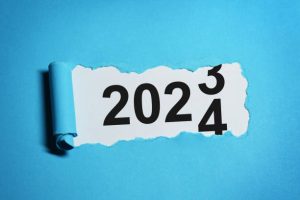Older Workers: A Too Often Ignored Resource?
Population demographics are changing in the industrialised world. People are living longer and young families are having less children, the combined result of which is a rapidly ageing workforce. At the same time, many sectors of agriculture report difficulty in sourcing skilled workers in today’s employment market and yet there is a propensity amongst many…
Population demographics are changing in the industrialised world. People are living longer and young families are having less children, the combined result of which is a rapidly ageing workforce. At the same time, many sectors of agriculture report difficulty in sourcing skilled workers in today’s employment market and yet there is a propensity amongst many companies to overlook older employees and/or favour employment of younger people and train them rather than investing in training or retraining of older workers.
Could it be that many companies are ignoring older workers as a valuable resource which could potentially close the current skills gap?
Preconceptions about age are common amongst hiring managers. If you are older it is commonly thought that you are likely to be less capable, less adaptable and less willing to do something new than your younger peers. US research has demonstrated that such beliefs are not backed up by fact. A large survey of HR professionals found that:-
- More than three quarters agreed that older workers have a higher level of commitment than younger workers.
- Nearly 70% concluded that training older workers cost the same or less than training younger workers.
- Nearly 60% reported that age does not affect the amount of time required to train an employee.
- Half of those surveyed determined that that older workers grasped new concepts as well as younger workers.
Scientific evidence shows that despite, “mental horsepower”, declining after the age of thirty, the main predictors of job performance; knowledge and expertise, have been shown to commonly increase beyond the age of eighty. There is also ample evidence to assume that traits like drive and curiosity are catalysts for new skill acquisition, even in late adulthood. There is no age limit for learning new things.
Older workers are more likely to have learned to manage their ego and have developed a higher degree of emotional intelligence. Accordingly, they often fit well into a team environment and make good mentors and don’t feel intimidated by the success of others.
It is generally accepted that with age, comes wisdom. Life experience enables one to recognize patterns which can pre-empt problems and provide solutions, a potentially invaluable skill in the workplace.
Hiring Managers should recognize and counteract their own bias and preconceptions when evaluating older workers. Instead of focusing on age when hiring, the focus should be on the fit of a candidate’s skills or their ability to learn them, in relation to those required in the role. Not to do so could result in overlooking valuable candidates capable of adding significant value to the workplace.
Reference: https://hbr.org/2019/09/the-case-for-hiring-older-workers
The Latest Updates
Let’s look at the current trends in job demand and talent availability in the agriculture and agribusiness sector in Australia over the second half of 2023 and the first quarter of 2024. There was a weakening of job demand in this sector but a slight improvement in candidate availability and job interest during this period….
In times past, people’s working lives often played out over many years at one company, but now the world has vastly changed. These days it is common to shift between jobs and organisations, but this practice raises questions as to what is today considered the Goldilocks time to spend in a job? How often do…
Employee retention matters. Organisational issues such as training time and investment, lost knowledge, mourning, insecure co-workers and a costly candidate search aside; failing to retain a key employee is costly. Various estimates suggest that losing a middle manager costs an organisation up to 100 percent of their salary. The loss of a senior executive is…











